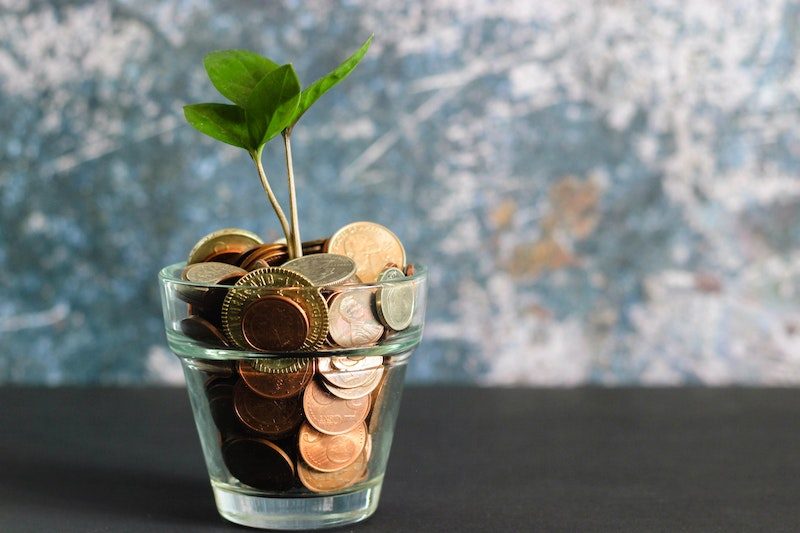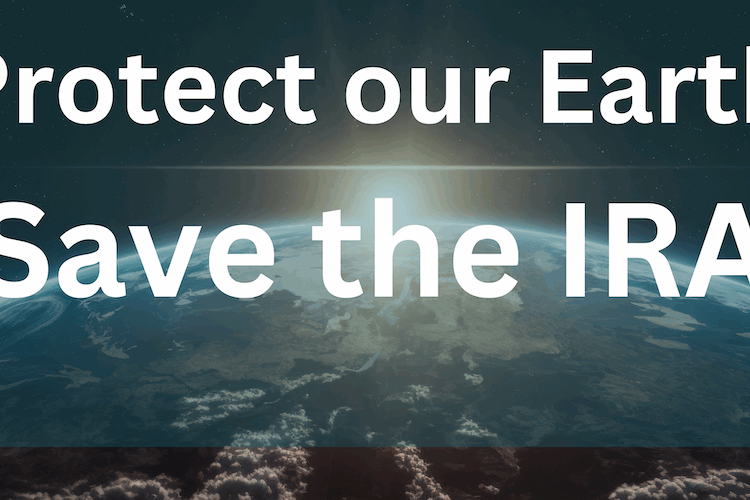Friends, Money, and the Earth

This article is part of our Pamphlets for Sharing series produced by QEW’s Publications Committee. Download the PDF here or order print copies by emailing info@quakerearthcare.org.
Mindful earning, spending, giving, and investing can lower our ecological foot- prints and promote peace and social justice. But going beyond our personal relationship with money:
- Why is there enough money for war, but not for education or protecting the environment?
- Why is there enough money for real estate and financial market speculation but not for everyone to afford health care?
- What if the schools had all the money they needed and the Air Force had to hold a bake sale to buy a bomber?
There are reports of a growing “wealth gap.” The average American worker has been earning less (adjusted for inflation) while working longer hours, and an increasing percentage of American house- holds have been going deeper into debt to maintain living standards and keep up with college costs. The income share of the top ten percent is used to express the level of inequality in the U.S. Figure 1 shows that the income share of the top ten percent was high before the 1929 crash and then, after the Great Depression, social programs such as Social Security were instituted and inequality decreased. During the period from 1945 through 1980, income was more widely shared. But beginning in the 1980s, under “trickle down” economics, inequality began to increase again so that by the recession of 2008, inequality had risen to the level that existed before the 1929 crash. Some economists believe that the very structure of the nation’s monetary system contributes to and reinforces inequitable distribution of wealth, as well as pressure to extract natural resources and destroy ecosystems. It is therefore incumbent on all Friends who are working for a just and ecologically viable world to learn more about how our monetary system works and what some people believe should be done to reform it.
Money and Growth
The most urgent issue is the connection between money and growth, since our current system requires continuous economic growth, which cannot be sustained on a finite planet. The global money supply has increased greatly in recent years. When this is combined with a growing population’s expectations of higher consumption due to accumulating wealth through growing investments, we have a perfect recipe for collapse due to overshoot of the planet’s physical carrying capacity.
Mainstream economists believe that money is an ethically neutral tool created by financial systems for markets to function efficiently. In this orthodox view, growth in the money supply is not a cause, but a reflection of growth in the economy as a whole. But ecological economists and other critics say that the problem is the way money is created.
Although governments print the bills and mint the coins, banks actually creates most of the money in circulation in the U.S. Banks create money when they make a loan by entering the amount of the loan in the borrower’s account as if it were a cash deposit. This is debt-based money, a monetary system based interest-bearing debt.
Standard accounting practices allow banks to count all the money that borrowers owe them as assets. Under Federal Reserve rules banks are allowed to loan a large portion of those assets. They are only required to keep a fraction of those assets in reserve, called the “fractional reserve” rule. New debts owed to the bank are in turn counted as part of the bank’s paper assets, until the total of outstanding loans can be as much as ten times the money held in reserve.
This fractional reserve rule, combined with the ability to create new money out of previous loans, allows more money to be put into circulation when the economy is growing. But some critics say this solution leads to a new problem: It doesn’t create any of the money that borrowers need to repay the substantial amount of interest that accumulates over the terms of their loans. Therefore, more and more money must be put into circulation—through even more loans!
It is only an expanding amount of debt and a lag between the time a loan is made and the time it is repaid that keeps the inherent shortage of money from bankrupting the system. This game of “musical dollars” seems to succeed as long as the economy is growing, but eventually it encounters peri- odic downturns in business cycles. When loans are not repaid, the bank cannot make new loans and a downward spiral is initiated. Banks must foreclose on mortgages and sell the borrower’s property that was put up as collateral to obtain the loan.<
A continually growing economy runs up against Earth’s finite resources. Economic growth has been utterly dependent on global petroleum production which is linked to accumulating greenhouse gases in the atmosphere that are destabilizing Earth’s cli- mate. Other natural resources are being depleted as well, such as rare metals needed for manufacture of electronics.
WHAT would our economic behavior look like if we adopted a more “Earth-friendly” view of money and learned how to better use our money to create a better world?
Spending
Can we make greener purchases? If we buy from local businesses and farmers, or participate in local barter or alternate currency systems, we keep money circulating in the local economy, supporting local jobs and community services. If we buy products made from recycled materials, we reduce net waste and extraction of nonrenewable resources. If we buy goods that are durable, repairable, and reusable, or if we shop at thrift stores, we reduce our total throughput of energy and materials. If we buy from businesses that we know have good social and environmental track records, we influence how people and the earth are treated.
Giving
Can we give more mindfully? Those of us who are fortunate to have enough income for discretionary spending can donate generously to socially and ecologically progressive causes, such as, Quaker Earthcare Witness, Friends Committee on National Legislation, Right Sharing of World Resources, Friends World Committee for Consultation, and American Friends Service Committee, that are carrying a unified concern for peace, justice, and the integrity of Creation. Automatic monthly withdrawals are particularly helpful, and we can remember them in our wills.
Investing
Should we shift our investments? The Quaker Institute for The Future Focus Book (#9), Right Relationship with Finance: Debt, Interest, Growth, and Security (Haines, et al, 2012) makes suggestions on investing for a secure future without depending on the growth of financial markets. Using “socially responsible” funds can steer capital toward renew- able energy, for instance, can make us part of a powerful “voting bloc” for the kind of world we want to leave to our children.
Lobbying
Should we seek monetary reform? Financial markets need appropriate regulation. How money is created and gets into circulation also may play a crucial role in the social, economic, and ecological problems facing the world today. Bills have been proposed in the Congress that would reform the monetary system, but they have not passed. We can encourage Friends Committee on National Legislation to take up the monetary reform concern. A first step forward economic reform is to overturn the Citizens United ruling to get corporate money out of political campaigns.
For Further Information
- Betterworld, 2017. Better World Shopper <betterworldshopper.org>.
- Brown, Peter G., and Geoffrey Garver. 2009. Right Relationship: Building A Whole Earth Economy. San Francisco: Berrett-Kohler.
- Dominguez, Joe, and Vicki Robin. 1992. Your Money or Your Life: Transforming Your Relationship with Money and Achieving Financial Independence. New York: Penguin Group.
- Dreby, Ed, Keith Helmuth, Margaret Mansfield, eds., 2012. It’s the Economy, Friends: Understanding the Growth Dilemma. QIF Focus Book 5, Quaker Institute for the Future. Producciones de la Hamaca: Caye Caulker, Belize.
- Dreby, Ed, and Judy Lumb, eds., 2012. Beyond the Growth Dilemma: Toward an Ecologically Integrated Economy. QIF Focus Book 6, Quaker Institute for the Future. Producciones de la Hamaca: Caye Caulker, Belize.
- Haines, Pamela, Ed Dreby, David Kane, and Charles Blanchard, 2016. Toward a Right Relationship with Finance: Debt, Interest, Growth, and Security. QIF Focus Book 9, Quaker Institute for the Future. Producciones de la Hamaca: Caye Caulker, Belize.
- McKibben, Bill. 2007. Deep Economy: The Wealth of Communities and the Durable Future. New York: Henry Holt & Co.
- Zarlenga, Stephen. 2015. The Lost Science of Money. American Monetary Institute. <monetary.org>.

